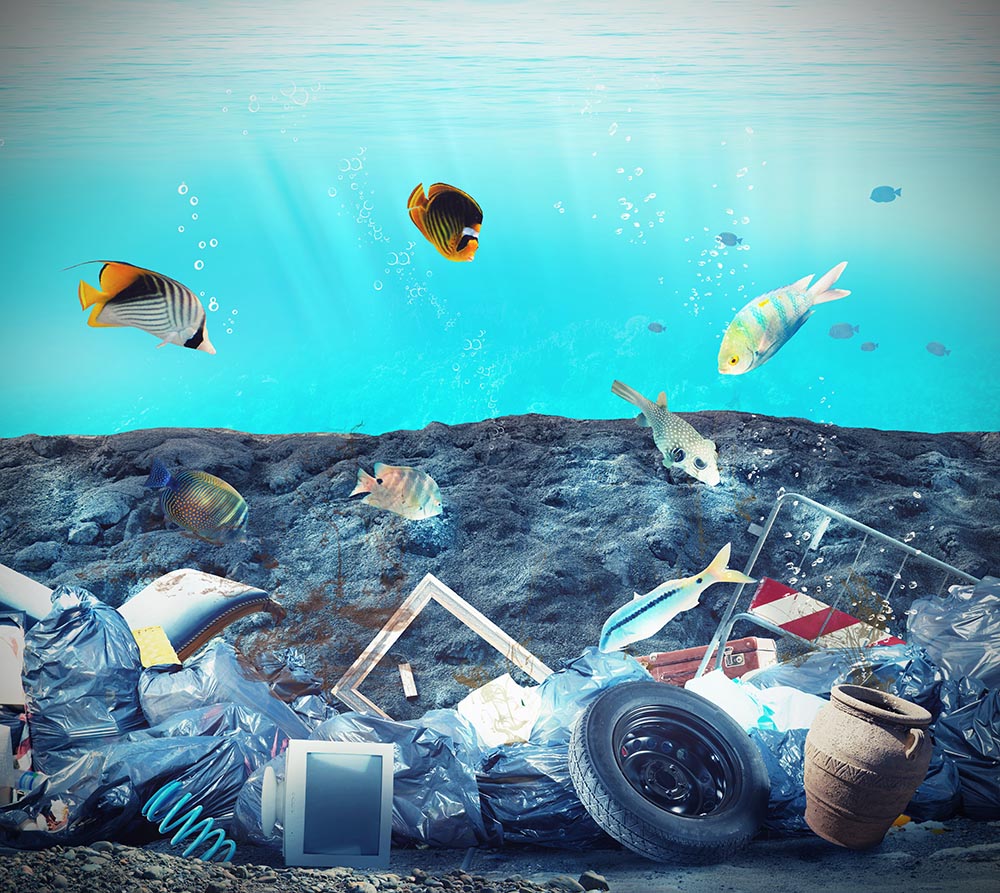
The salty air of Fish Island carries with it the scent of the sea, a constant reminder of the delicate balance that defines this unique coastal ecosystem. For generations, residents have cherished the area’s natural beauty and worked diligently to preserve its fragile environment. From the teeming marine life in the surrounding waters to the migratory birds that grace the skies above, Fish Island is a haven for biodiversity. Any development, no matter how seemingly innocuous, is viewed with careful scrutiny, and its potential impact on the delicate ecological web is always paramount.
The local community has a deeply ingrained understanding of the interconnectedness of all things, and they appreciate how even small changes can have far-reaching consequences. They understand that every decision made today will impact the environment for generations to come. This awareness has fostered a strong sense of environmental stewardship and a willingness to actively protect the natural resources they hold so dear.
So, when whispers of a proposed large-scale development near Fish Island began to circulate, anxieties quickly rose. The sheer scale of the project raised concerns about the potential for disrupting the existing ecosystem. The anticipated increase in traffic, noise pollution, and potential runoff from the proposed facility prompted many to question whether the benefits of such a development outweighed the potential environmental costs.
The development in question? A large car wash. While seemingly harmless, the scale of this car wash, its proximity to sensitive habitats, and the potential for water contamination quickly made it a target of environmental concern.
This led to a passionate and organized response. **Environmentalists oppose large car wash near Fish Island**, fearing its potentially detrimental effects on the surrounding ecosystem.
The Potential Environmental Impact: A Closer Look
Water Quality Concerns
One of the primary concerns raised by environmentalists is the potential impact on water quality. Large car washes typically use significant quantities of water, and even with water recycling systems in place, there is always a risk of contaminated runoff entering nearby waterways. Soaps, detergents, and other chemicals used in the car washing process can contain pollutants that can harm aquatic life.
These pollutants can disrupt the delicate balance of the ecosystem, affecting everything from microscopic organisms to larger fish and marine mammals. The accumulation of these chemicals over time can also lead to long-term environmental damage, making it difficult to reverse the effects. Environmentalists argue that the potential for water contamination is simply too great a risk to take.
The potential for spills and leaks is also a significant concern. Even with stringent safety measures in place, accidents can happen, and a single spill of hazardous chemicals could have devastating consequences for the surrounding environment. The proximity of the proposed car wash to sensitive wetlands and coastal areas further exacerbates these concerns.
Furthermore, the sheer volume of water used by a large car wash can put a strain on local water resources, especially during periods of drought. This can lead to competition for water between the car wash and other users, including residents and local businesses. Environmentalists emphasize the importance of conserving water and prioritizing its use for essential needs.
Therefore, the environmental impact related to water quality are crucial factors when weighing the pros and cons of the development. Ensuring strict compliance with environmental regulations is only one part of the solution. Environmentalists are arguing for a smaller scale project, or even alternative locations that are less sensitive.
Impact on Marine Life
Fish Island is home to a diverse array of marine life, including fish, shellfish, and other invertebrates. These organisms are particularly vulnerable to changes in water quality and habitat degradation. The potential runoff from the proposed car wash could introduce pollutants that harm or kill these organisms, disrupting the food chain and impacting the overall health of the ecosystem.
Many species rely on the coastal waters surrounding Fish Island for breeding and feeding. The introduction of pollutants can interfere with these vital processes, reducing the populations of these species. This can have cascading effects throughout the ecosystem, impacting other species that depend on them for food.
The noise generated by the car wash could also disrupt marine life, particularly marine mammals that use sound for communication and navigation. Constant noise pollution can stress these animals, making it difficult for them to find food, avoid predators, and reproduce.
Furthermore, the construction of the car wash could damage or destroy critical habitat, such as wetlands and seagrass beds. These habitats provide important nursery grounds for many species and play a vital role in filtering pollutants from the water. The loss of these habitats would further exacerbate the negative impacts on marine life.
All these potential impacts on marine life are being highlighted by environmentalists, and the lack of comprehensive environmental impact assessments for this project is under scrutiny. **Environmentalists oppose large car wash near Fish Island** because they believe there’s not enough evidence that the marine life in the region won’t be impacted.
The Voice of the Community
Community Opposition and Concerns
The community surrounding Fish Island has voiced strong opposition to the proposed car wash. Residents are concerned about the potential impact on their quality of life, as well as the environmental consequences. Many fear that the car wash will lead to increased traffic, noise pollution, and a decline in property values.
Local residents are also worried about the impact on tourism. Fish Island is a popular destination for nature lovers and outdoor enthusiasts. The construction of a large car wash could detract from the area’s natural beauty and reduce its appeal to visitors.
The community has organized several public meetings to discuss the proposed car wash and to voice their concerns to local officials. These meetings have been well-attended, demonstrating the strong level of community interest in this issue.
Petitions have also been circulated, gathering signatures from residents who oppose the car wash. These petitions will be presented to local officials as evidence of the community’s widespread opposition.
The local community has vowed to continue fighting against the proposed car wash until their concerns are addressed and the project is either modified or abandoned altogether.
The Role of Local Activists
Local activists have played a crucial role in organizing the opposition to the proposed car wash. They have worked tirelessly to raise awareness about the potential environmental impacts and to mobilize the community to take action.
These activists have organized public meetings, circulated petitions, and contacted local officials to express their concerns. They have also conducted research on the environmental impacts of car washes and presented their findings to the community and local officials.
Local activists are committed to protecting the environment and ensuring that future development projects are environmentally sustainable. They believe that the proposed car wash is not in the best interests of the community or the environment.
They’re working closely with Environmental Lawyers to ensure the best outcome possible for the community and the environment.
The activists are confident that by working together, they can protect Fish Island from the potentially harmful effects of the proposed car wash.
Economic Considerations
Potential Economic Benefits vs. Environmental Costs
Proponents of the car wash argue that it will bring economic benefits to the community, including new jobs and increased tax revenue. However, opponents argue that these benefits are outweighed by the potential environmental costs. The cost of cleaning up pollution, restoring damaged habitats, and addressing the health impacts of environmental contamination could far exceed any economic gains.
The potential impact on tourism is also a significant economic consideration. If the car wash detracts from the area’s natural beauty and reduces its appeal to visitors, it could lead to a decline in tourism revenue. This could have a negative impact on local businesses that rely on tourism for their income.
Furthermore, the car wash could potentially lower property values in the surrounding area. This could have a negative impact on homeowners and the local economy.
It’s important to carefully weigh the potential economic benefits against the potential environmental costs before making a decision about whether or not to approve the proposed car wash. A thorough cost-benefit analysis should be conducted to ensure that the project is in the best interests of the community.
Environmentalist groups are commissioning their own economic impact study to support their arguments.
Sustainable Alternatives
Instead of pursuing a large-scale car wash, environmentalists are advocating for more sustainable alternatives. These alternatives include promoting water conservation, supporting local businesses that use eco-friendly car washing practices, and encouraging the use of public transportation.
Water conservation can be achieved through a variety of measures, such as installing low-flow showerheads and toilets, using drought-tolerant landscaping, and educating residents about water-saving tips. By reducing water consumption, the community can lessen the strain on local water resources and reduce the need for large-scale water-intensive businesses like car washes.
Supporting local businesses that use eco-friendly car washing practices can help to reduce the environmental impact of car washing. These businesses use less water, use biodegradable soaps and detergents, and implement water recycling systems.
Encouraging the use of public transportation can help to reduce traffic congestion and air pollution. This can also help to reduce the demand for car washing services. By promoting sustainable transportation options, the community can create a healthier and more environmentally friendly environment.
Environmentalists are working to engage government officials to consider all possible alternative solutions, and weighing their positive and negative impact on the community.
Regulatory Framework and Enforcement
The Role of Environmental Regulations
Environmental regulations play a crucial role in protecting the environment from the potential impacts of development projects. These regulations set standards for air and water quality, waste disposal, and habitat protection. They also require developers to conduct environmental impact assessments to identify and mitigate potential environmental risks.
The proposed car wash must comply with all applicable environmental regulations. This includes obtaining permits for water use, wastewater discharge, and air emissions. The car wash must also implement measures to prevent pollution and protect sensitive habitats.
Local, state, and federal agencies are responsible for enforcing environmental regulations. These agencies conduct inspections, issue permits, and take enforcement actions against those who violate environmental laws.
Environmental regulations are designed to protect the environment and ensure that development projects are carried out in an environmentally responsible manner. However, the effectiveness of these regulations depends on the strength of the regulations themselves and the willingness of agencies to enforce them.
Environmental activists are now urging local authorities to review and upgrade existing environmental regulations to protect the unique ecology of Fish Island. **Environmentalists oppose large car wash near Fish Island**, and hope for a stronger regulatory environment.
Ensuring Compliance and Accountability
To ensure compliance with environmental regulations, it’s important to have a system of monitoring and enforcement. This system should include regular inspections, audits, and public reporting of environmental performance. It should also include penalties for violations of environmental laws.
Community involvement is also essential for ensuring compliance and accountability. Residents should be able to report environmental concerns to local officials and to participate in the decision-making process for development projects.
Transparency is also crucial. All environmental data and information should be publicly available so that residents can monitor the environmental performance of businesses and government agencies.
By ensuring compliance and accountability, we can protect the environment and ensure that development projects are carried out in an environmentally responsible manner.
Many feel that an independent third-party organization should be the one responsible for monitoring the project during its lifespan.
Looking Ahead: A Path Forward
Community Engagement and Collaboration
The best way to address the concerns surrounding the proposed car wash is through community engagement and collaboration. This involves bringing together residents, developers, local officials, and environmental experts to discuss the project and find solutions that are acceptable to everyone.
Community engagement can take many forms, including public meetings, workshops, surveys, and online forums. The goal is to create a dialogue between all stakeholders and to ensure that everyone has an opportunity to voice their concerns and contribute to the decision-making process.
Collaboration involves working together to find solutions that address the concerns of all stakeholders. This may involve modifying the project to reduce its environmental impact, implementing mitigation measures to protect sensitive habitats, or exploring alternative locations for the car wash.
By engaging and collaborating with the community, we can create a development project that is environmentally sustainable and that benefits everyone.
These meetings are already ongoing, but many feel that they haven’t been as effective as they could be due to a lack of transparency from the developer.
Sustainable Development Principles
Sustainable development is a development that meets the needs of the present without compromising the ability of future generations to meet their own needs. This means considering the environmental, social, and economic impacts of development projects and making decisions that are environmentally responsible, socially equitable, and economically viable.
Sustainable development principles should guide all development projects, including the proposed car wash. This means minimizing the environmental impact of the car wash, protecting sensitive habitats, and ensuring that the project benefits the local community.
Sustainable development is not just about protecting the environment. It’s also about creating a more just and equitable society. This means ensuring that everyone has access to clean air and water, affordable housing, and good-paying jobs.
By embracing sustainable development principles, we can create a future that is both prosperous and environmentally sound.
Applying these principles to the current development project requires the developer to make some major changes to their design and environmental impact mitigation plan.
Conclusion
The debate surrounding the proposed large car wash near Fish Island highlights the ongoing tension between economic development and environmental protection. It underscores the importance of careful planning, community engagement, and a commitment to sustainable development principles. While the future of the project remains uncertain, the passionate advocacy of environmentalists and concerned residents ensures that the environmental consequences will be thoroughly considered.
Interested in reading more about environmental issues and community activism? Check out our other articles!

